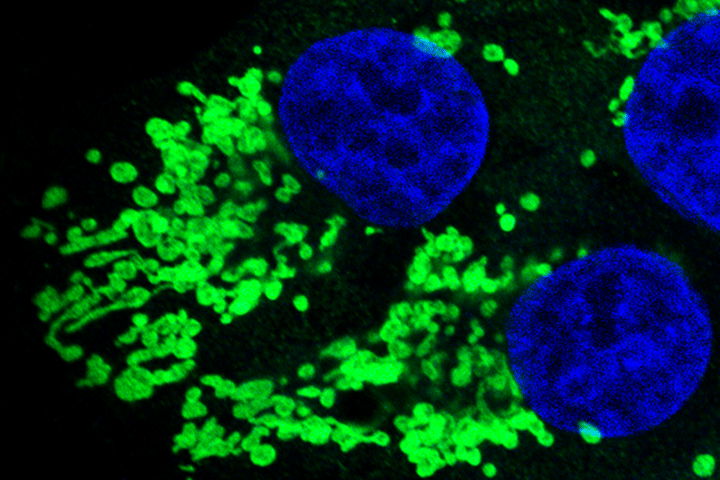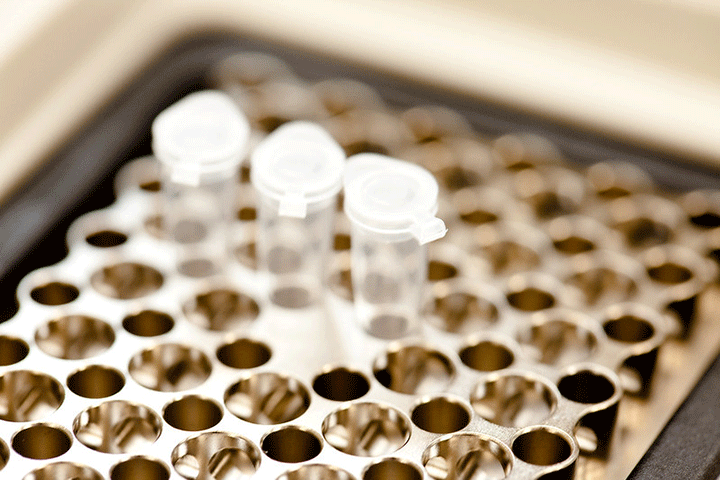An Interview with Dr. Tyler Jacks

Tyler Jacks, Ph.D., is one of the leading cancer researchers in the world.
He is the Director of the Koch Institute for Integrative Cancer Research and the David H. Koch Professor of Biology at MIT (Cambridge, Massachusetts). He is a Daniel K. Ludwig Scholar and co-director of the Ludwig Center for Molecular Oncology. He is also an Investigator at the Howard Hughes Medical Institute (Chevy Chase, Maryland). Jacks has received numerous awards and honors and has also served as Chair of the National Cancer Advisory Board at the National Cancer Institute, and was a member of the Board of Directors of the American Association for Cancer Research (AACR). He was elected President of the AACR in 2009 and has also been elected to the National Academy of Sciences, the National Academy of Medicine, the American Academy of Arts & Sciences, and the inaugural class of Fellows of the AACR Academy. In 2015, he was the recipient of the Killian Award, the highest honor the MIT faculty can bestow upon one of its members. In 2020 he was recognized with the AACR Princess Takamatsu Memorial Lectureship.
The Jacks laboratory studies the genetic events underlying the development of cancer. Professor Jacks has pioneered the use of gene targeting technology in mice to study cancer-associated genes and to construct mouse models of many human cancer types, including cancers of the lung, pancreas, colon, and soft tissue. He is considered a world leader in the study of cancer genetics, serves on numerous boards, and is a scientific advisor to Lustgarten Foundation, among others. In 2018, the Jacks Lab became one of three Lustgarten Foundation Pancreatic Cancer Research Laboratories in the United States.
Jacks talked to Let’s Win about his work and the inroads in pancreatic cancer research.
What do you think the biggest misconception is about the basic sciences?
The biggest misconception is that it’s boring. The word “basic” is almost pejorative. We usually use the word “discovery,” which is more accurate. As scientists, we’re trying to discover things, and to chart uncharted territory. We’re seeing things that no one has seen before, things that are brand new and important. There is an excitement to research the general public doesn’t appreciate. . . .The reality is that people involved in discovery are extraordinarily creative people who work in teams. This kind of work isn’t easy. It requires a lot of dedication and commitment. But there’s really nothing like it.
Every patient knows about immunotherapy, and how incredible that form of treatment can be in treating some cancers. Pancreas cancer seems to defy current immunotherapeutic strategies. What needs to done? And what needs to be learned?
First of all, the early generation of immune-oncology drugs that are being used for melanoma and lung cancer have not worked well in pancreas cancer. But there is a small subset of pancreas cancer patients who do benefit. Doing discovery research in the context of pancreas cancer and immunotherapy, the big question is how do we wake up the immune system to recognize the disease? What we need to do is better understand how pancreas cancer evades the immune system.
My lab and others are making good progress, digging deep into the tumor in patients and mouse models. We’re using technologies and techniques that just a few years ago didn’t even exist. What we’re trying to figure out is how the immune system is being controlled by the tumor. Why is it failing to recognize and eradicate cancer cells? We’re getting some good information in trials that are looking at that issue. There’s a trial out of Penn with combination immunotherapy regimens and the early data looks promising. And there are other trials taking different approaches, including work in my own lab that’s being prepped for clinical investigation. No one likes to make promises in this business, but I do think we are going to find answers.
How can knowing the mutations that cause a patient’s cancer shape treatment? Are we still in the early stages of making the most of genomic data?
It’s very dependent, because on one hand we are in the early days for pancreas cancer patients and targeted therapies. In pancreas cancer, knowing particular mutations, like a mismatch repair deficiency for example, makes patients more sensitive to certain treatments. And all pancreas cancer patients now are encouraged to get molecular profiling.
What we need to do is to get to the point in pancreas cancer where we currently are with lung cancer or melanoma. Today if a lung cancer patient fits into a specific category, a targeted approach completely and dramatically changes a treatment pathway for them. Patients live longer and they live well. We hope that over time there will be more examples in pancreas cancer that have a similar trajectory. It truly is frustrating for all of us that currently we don’t have a lot of targeted approaches for pancreas cancer.
KRASis a major regulator of signaling pathways that help cells survive. If it’s mutated, cells multiply out of control. Mutated KRAS is found in about 90 percent of pancreatic cancers. Is there progress being made in making KRAS more druggable?
The answer is yes, but so far it’s limited. KRAS, when it’s altered, can be altered in a lot of different ways. There are a whole series of mutations that can cause KRAS to become cancer causing. One mutation, G12C, is being tested in clinical trials. But that mutation is more prevalent in non-small cell lung cancer, but it’s in the single digits in pancreas cancer so not as many patients would potentially benefit. But the same approach being taken with G12C is starting to be done in other (KRAS) mutations. There is a lot of work in academia and in industry looking at KRAS, and it’s been a really tough nut to crack. But I would not at all be surprised if someone figures it out.
Patient-derived organoids are a hot topic. But mouse models have led to numerous groundbreaking insights into cancer. What’s your take on both?
No model is perfect, but each can help us get some important information. Organoids serve a very important purpose, especially pancreas cancer patient-derived organoids. There’s a lot of important work going on using organoids to identify certain subtypes of pancreas cancer and maybe predict responses to certain treatments. That can help get us a step closer to personalized medicine. So organoids are going to continue to get better and really grow in importance.
But here’s a difference. With the mouse model, we can study the disease process in a natural setting. You can see important interactions not only between cancer cells but other cells in the body. That gives us the opportunity to study cancer in context—because it’s never just about the cancer. It’s how the immune system talks to cancer and how cancer talks back. You can’t study that outside the body whether it’s a human or a mouse. All the intricate tools for genetic manipulation in the mouse are far superior to other species, including humans. And that’s very powerful in preclinical settings.
You’ve had a storied career, and there’s obviously still a lot more to come. Is there anything of which you’re particularly proud?
I think what I’m particularly proud of is the people I’ve trained, whether someone stayed with the lab for six years or even just a summer. I’m very proud of what we’ve done in helping these scientists be prepared whether they work in industry or academia. Our trainees are working all over the world carrying out their own research and breaking new ground. I suppose there’s a certain parental pride in that. You want all of your kids—the post-docs, the grad students, the trainees—to do great, and when they do there’s no feeling like it. I really do think that providing that kind of training probably is my greatest accomplishment.
Anything you wish you would have done differently?
As far as doing things differently, that’s tough. I’ve always taken an approach of going where the science leads me and applying new technologies. That’s taken us far afield. Many labs focus on one problem year after year. Our lab has more fluidity. Maybe I could have had a greater impact if I had dug into one thing for 30 years. Maybe we would have had more progress with something like KRAS. Our contributions have been broader, but less deeply focused. But I still don’t think I would do it differently. I like the style we’ve chosen, especially as it relates to our trainees. I want my trainees to take what they worked on and work on it in their own lab. This allows them to have an open playing field and allows them to feel and be successful.
What’s it been like running a big lab like this during a pandemic?
It’s been really difficult and very challenging. I give all the credit to all the people who are doing their best, and actually above and beyond their best. We had a skeleton crew for a while. We needed to push progress and there were mouse strains we absolutely could not give up on. We have some return to business as usual now, but we are absolutely working in shifts to keep a low density. We have a lot of Zoom meetings, and all credit to the technology, but there’s no substitute for the in-person experience. We’re all looking forward to returning at some point to a more normalized lab life. Until that time, we will keep pushing the boundaries as best we can and help move us forward to our collective goal.






